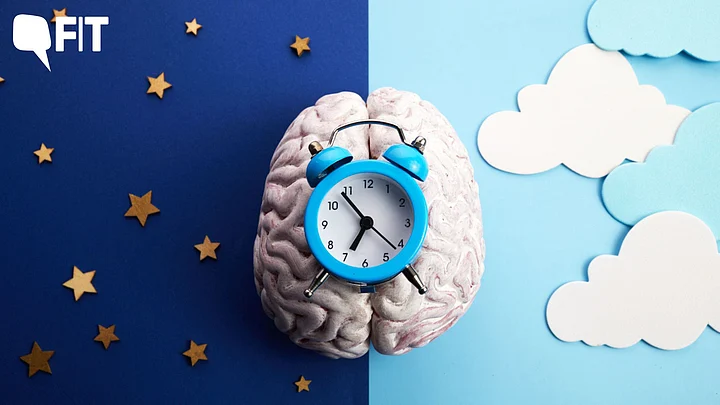We look towards the sun for a lot of things, for sunlight, for warmth, for helping our body make the essential vitamin D, for mood upliftment, to help beat the cold, and more.
But not many know that the circadian rhythm, metabolism, and nutrition are all intimately linked, so you can add to the above benefits of the sun list, getting directions to eat the right way too.
First Things First. What Is Circadian Rhythm?
Also known as our sleep and wake cycle, circadian rhythm is an internal cycle where our metabolism and multiple other functions in the body follow a natural body clock change through the day following the sun.
The body clock basically works based on light and darkness in your environment (sunrise and sunset).
As per your circadian rhythm your body begins to secrete hormones and digestive juices as per the transitions of sun through the day. After sunrise body receptors like skin and eyes sense the light and tell the brain that its day, so the body secrets the hormone ghrelin, which stimulates digestion, metabolism, and other functions in the body.
Post sunset the body secretes the hormone leptin which don’t support any active functions especially digestion.
This rhythm plays a role in many body processes like sleep-wake cycle, metabolism efficiency, temperature control, hormonal functioning, organ functioning as well as the gut microbiota.
So What Is Circadian Rhythm Diet
If our internal clock and the external flow of sunlight and darkness fall out of sync that is you work against this biological clock (for example you starve in the first half of the day when the digestion power is at its best and eat heavy meals late in the day post sunset when digestion is ebbing) it can lead to chaos in the body systems.
The trending circadian rhythm diet (also called the sun cycle diet or the body clock diet) believes in following a way of eating that helps to keep both the internal and external clock in sync.
It can help with weight loss, keep us fitter, improve our energy levels, and also help cut down the risk of multiple lifestyle disorders including type 2 diabetes and high blood pressure.
A Word of Advice
Eat within a window of 12 hours or less and fast for the remaining 12 or more hours each day.
Typically between 8 am and 8 pm If you wish to combine this with ratio of 16:8 intermittent fasting (16-hour fast and 8 hour eating window) then as per your circadian rhythm the best timings to eat would be between 10 am and 6 pm.
After 6 pm body begins to prepare for shutdown as the sun sets, the digestive juice production becomes low and melatonin levels increase.
To follow the digestive fire of the body (which goes down concurrently with the sun), make breakfast and lunch your larger meals and dinner your smaller meal of the day.
Divide the total daily calorie intake into three main meals and two snacks, and focus on including enough high-quality protein (like fish or dairy), plenty of vegetables, quality fibre, and good fats.
Choose nutrient-dense foods and practice portion control stringently.
The Sleep Factor
Adequate sleep is an important factor in this diet as sleep affects the hormone ghrelin that stimulates your appetite as well as leptin that does the opposite.
When we are sleep deprived, the circadian rhythm goes haywire leading to an increase in ghrelin and a decrease in leptin levels in the body, which leads to more hunger and sugar cravings.
Also, a disrupted circadian rhythm may also lead to increased insulin production in the body.
This is why sleeping well and enough is an important part of the circadian rhythm diet.
Jet lag, certain medications, and irregular work hours can also mess with our circadian rhythm and diet.
(Kavita Devgan is a nutritionist, weight management consultant, and health writer based in Delhi. She is the author of The Don't Diet Plan: A no-nonsense guide to weight loss, Fix it with Food, Ultimate Grandmother Hacks, and Don’t Diet! 50 Habits of Thin People.)

